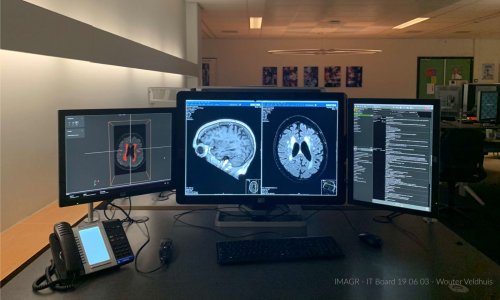Cloud computing takes the European healthcare industry by storm
Enterprise-wide healthcare informatics will improve quality of medical services and efficiency of operations while reducing expenditures. Like many other verticals, the intensely competitive and dynamic healthcare industry is looking to cloud computing as a means to improve quality of services while reducing costs

The mature healthcare IT market, in particular, needs a solution to grow revenues. Workflows are currently being streamlined and made accurate by solutions such as picture archiving and communication systems (PACS), radiology information systems (RIS), healthcare information systems (HIS), and clinical information systems (CIS). However, the market is in need of solutions that integrate these technologies, enabling all relevant patient and imaging data to be available at one spot and yet accessible across various locations. Such enterprise-wide data sharing can help healthcare service providers increase efficiency at nominal expenditure.
Cloud computing is quickly expanding into a key enabler for enterprise-wide solutions. Implementing cloud computing technologies appropriately can aid European healthcare providers improve the quality of medical services and the efficiency of operations, share information across geographic locations, and manage expenditures. The concept can be applied in a variety of ways, including data storage and data loss prevention, maintaining patient information records, and authorized sharing of information. For instance, recorded patient information may need to be shared beyond hospital boundaries during an emergency where time is a crucial factor. This can be done quickly and efficiently by providing authorized access to this information on the cloud.
With a mature PACS market across Europe, healthcare providers are in need of additional storage systems to back their data up, which can make the process of storing data into an expensive affair, affecting the operational budget. “By using cloud computing, the expenditure on hardware and storage space would be cut down, as cloud storage can cost almost 10 times less than regular storage systems,” notes Frost & Sullivan Healthcare Analyst Raghuraman Madanagopal. “In addition, cloud storage implementation may result in a drastic readjustment of the amount spent on training resources to manage the storage systems.”
Risk of data loss is also a major concern for most healthcare providers, as it has crucial impact on the operational efficiency of hospitals. Cloud computing provides extra safety in reducing the risk of data loss, by regularly upgrading itself and improving protection standards. Upgrades occur without any downtime and real time access is not impacted by this, therefore ensuring the 24/7 accessibility required by healthcare providers.
Cloud computing implementation is, however, in its early stages, and there are still a few restraining factors such as security and compliance concerns, shortage of qualified personnel to shift data from hardware to the cloud, and poor broadband penetration or low internet speeds in many parts of Europe.
Nevertheless, cloud computing and its services provide hospitals across Europe with excellent options to improve treatment quality and this will encourage large-scale implementation in the coming years. “Cloud service providers are constantly innovating themselves and improving their security standards in order to comply with different regulations and ensure high security,” says Madanagopal. “The advantages of cloud computing in terms of storage size and storage efficiency, data loss prevention and facilitating synchronized and authorized sharing of data can change the dynamics of the European healthcare informatics industry in the course of time.”
16.07.2013





